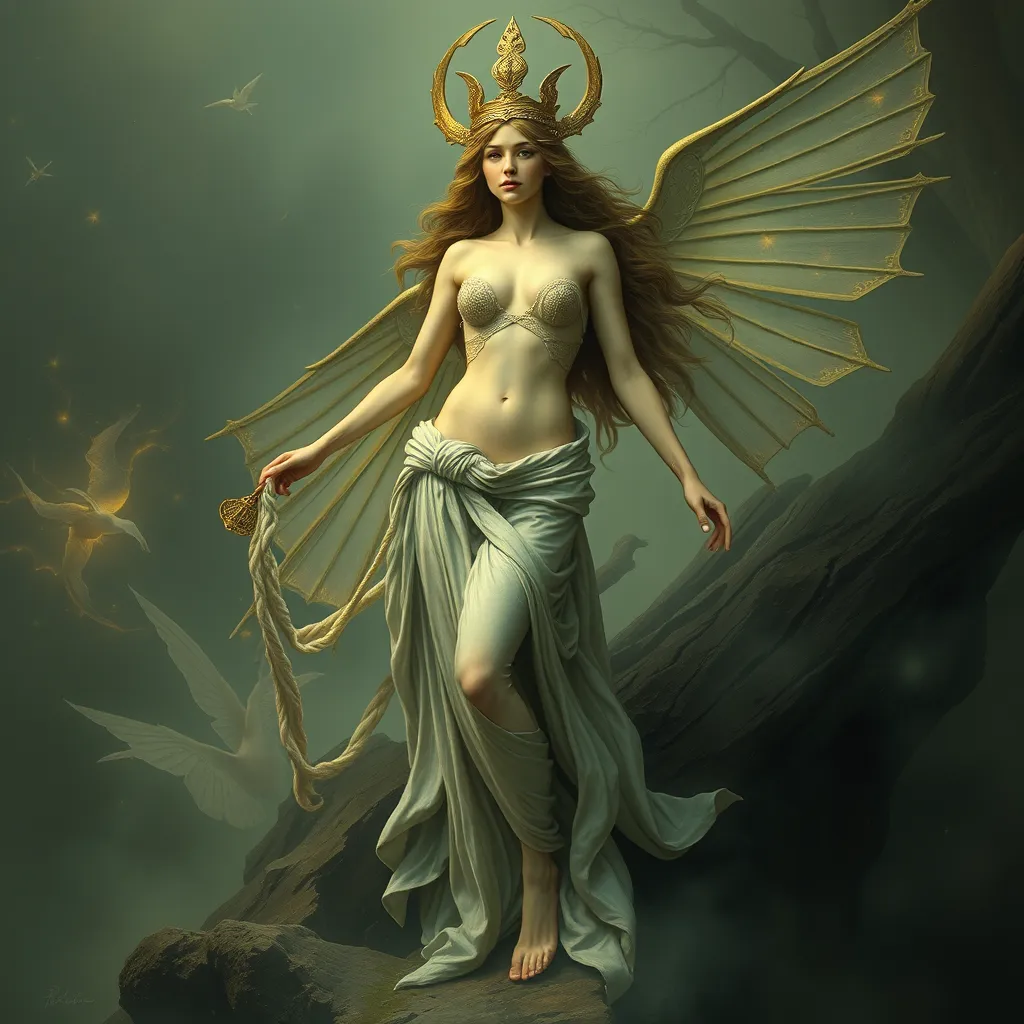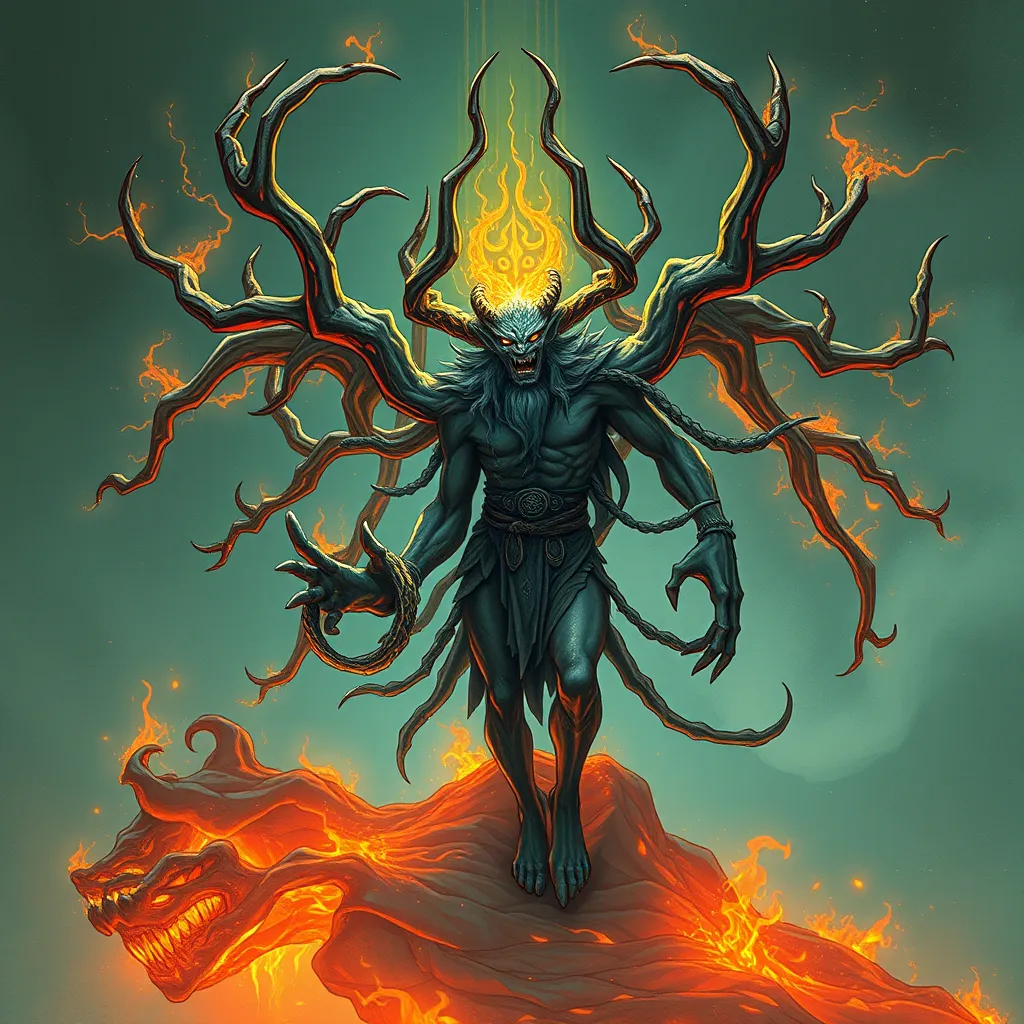The Dragon’s Ascent: Celestial Beings in Chinese Mythology
I. Introduction to Chinese Mythology
Chinese mythology is a rich tapestry woven from the threads of history, culture, and philosophy. It holds a significant place in the cultural identity of China, reflecting the beliefs, values, and traditions of its people. Myths serve as a bridge between the human experience and the divine, providing explanations for natural phenomena, moral guidance, and a sense of belonging.
Central to this mythology are celestial beings, which play crucial roles in shaping the narrative landscape. These beings, ranging from deities to mythical creatures, are often depicted in stories that explore the relationship between humans and the cosmos, embodying virtues and ideals that resonate with Chinese culture.
II. The Symbolism of the Dragon in Chinese Culture
The dragon is perhaps the most iconic figure in Chinese mythology, revered and celebrated across millennia. It is not merely a creature of fantasy but a powerful symbol representing the essence of Chinese culture.
- Historical significance: Historically, dragons were associated with the emperor, symbolizing imperial authority and governance. The emperor was often referred to as the “Son of Heaven,” and the dragon served as a celestial counterpart to earthly rule.
- Cultural reverence: In Chinese culture, dragons are seen as benevolent beings that bring rain, control water, and ensure fertility. They are celebrated for their protective nature and are often depicted in art, literature, and festivals.
Moreover, the dragon embodies power, strength, and good fortune. It is a symbol of auspiciousness, often invoked during celebrations such as weddings and the Lunar New Year, where its image is believed to bring blessings and prosperity.
III. Types of Celestial Beings in Chinese Mythology
Chinese mythology features a diverse array of celestial beings, each with unique characteristics and narratives. Understanding these categories helps in appreciating the complexity of Chinese mythological traditions.
- Dragons: As previously discussed, dragons hold a paramount place in mythology, symbolizing power and authority.
- Immortals: Often depicted as wise and benevolent beings, immortals possess supernatural abilities and are celebrated for their wisdom and longevity.
- Deities: Various deities represent aspects of nature, such as the God of Wind or the Goddess of Mercy, each playing specific roles in the cosmic order.
These celestial beings are distinct from terrestrial creatures, as they often embody spiritual concepts and natural forces, serving as intermediaries between the human realm and the divine.
IV. The Dragon in Mythological Context
The dragon’s significance is further enriched by its origin stories and myths. Various tales recount how dragons came to be revered figures in Chinese culture.
- Origin stories: One popular myth suggests that dragons were once powerful gods who descended to earth to assist humanity, thus earning their revered status. Another tale speaks of the Yellow Dragon, who emerged from the river Lo to deliver the teachings of civilization.
- Key dragon figures: Notable dragon figures include the Four Dragon Kings, each governing a different sea, and the Yellow Dragon, who is often associated with the creation and order of the universe.
V. Interactions Between Dragons and Other Celestial Beings
The dragon’s interactions with other celestial beings are pivotal in many myths, illustrating the interconnectedness of these figures in the cosmic hierarchy.
- Relationships with deities and immortals: Dragons are often depicted as guardians or allies of deities. For instance, they may assist in battles against malevolent forces or aid in the protection of sacred places.
- Role in cosmological events: In folklore, dragons are integral to significant events, such as the changing of seasons or the control of the elements. Their ability to summon rain is particularly important in agrarian societies.
VI. The Dragon’s Ascent: Transformation and Evolution
Over the course of history, the representation of dragons has evolved, reflecting changes in societal values and cultural contexts.
- Evolution in mythology: Initially, dragons were depicted as fierce and malevolent creatures; however, as time progressed, they became symbols of good fortune and benevolence, aligning with the ideals of harmony and prosperity.
- Transition to modern representation: In contemporary media, dragons continue to be prominent figures, appearing in films, literature, and art, often embodying a blend of ancient myth and modern imagination.
VII. The Impact of Dragons on Chinese Culture
The influence of dragons extends beyond mythology, permeating various aspects of Chinese culture, including art, literature, and festivals.
- Art and literature: Dragons are a common motif in traditional Chinese art, depicted in paintings, sculptures, and textiles. They often symbolize strength and auspiciousness, enhancing the aesthetic and cultural value of artworks.
- Festivals: The Dragon Boat Festival is a notable celebration that honors the dragon’s spirit, featuring dragon boat races and traditional foods, emphasizing community and cultural heritage.
In contemporary society, the dragon remains a powerful symbol, representing national pride and identity, often appearing in celebrations and public events, showcasing the enduring legacy of this celestial being.
VIII. Conclusion: The Enduring Legacy of Celestial Beings in Chinese Mythology
In conclusion, the significance of dragons and other celestial beings in Chinese mythology reflects the deep-rooted cultural values and beliefs of the Chinese people. These mythological figures serve as symbols of power, wisdom, and harmony, embodying the aspirations and ideals of society.
The enduring legacy of dragons continues to resonate today, as they inspire art, literature, and cultural practices. As symbols of transformation and fortune, dragons remind us of the rich tapestry of mythology that shapes our understanding of the world and our place within it.
Through their stories, dragons and celestial beings invite reflection on the connection between humanity and the cosmos, highlighting the importance of these mythological figures in our cultural heritage.



